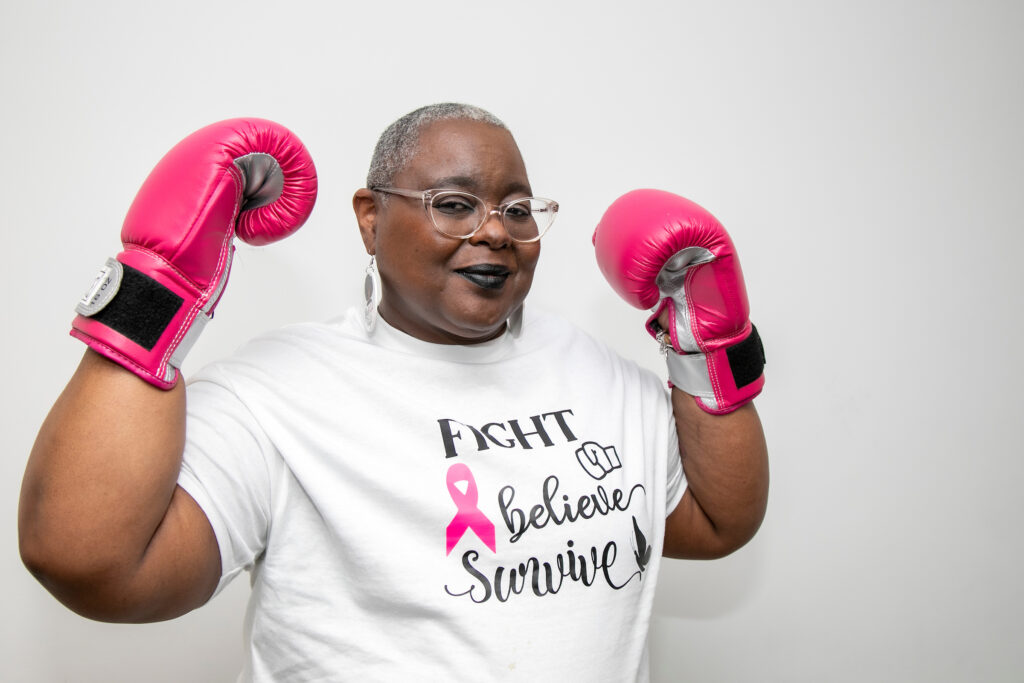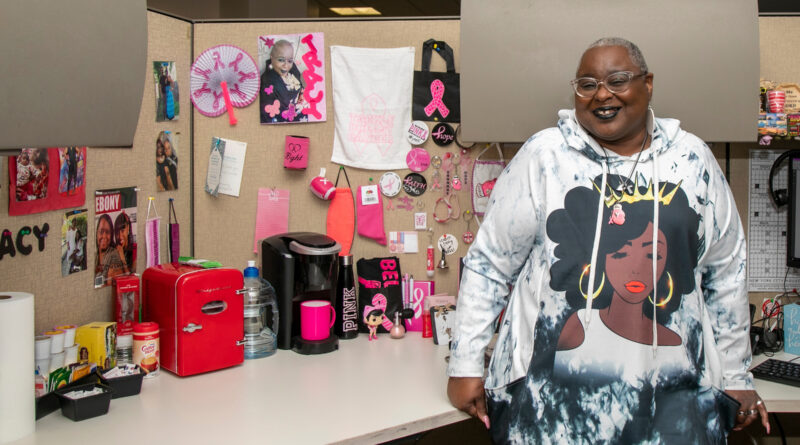Meet Tracy Tomer, Breast Cancer Advocate
I’m thankful for every day that I open my eyes to see another day because I’m still afraid of this journey, but I refuse to let it define me – I’m living life to the fullest.
-Excerpt from Tracy Tomer’s writing on her breast cancer experience
In early March 2020, while most New Yorkers were worried about the developing global COVID-19 pandemic, NYCHA employee and resident Tracy Tomer was dealing with a personal crisis of her own: she had just begun treatment for breast cancer.
In September 2019, Ms. Tomer found a lump in her breast through self-examination. Because she was nervous, she waited until November 2019 to have her first mammogram.
“I talk to any woman or any person that will listen,” she said. “Don’t let fear interfere with what your health may be saying. I want to tell women to get their mammograms done. I waited, being fearful for so long, being afraid of the diagnosis. There’s no age limit on when you should get a mammogram. It’s better to know than to not know, but it’s scary to know. Cancer doesn’t give you a warning that it’s coming.”
Ultimately, she was diagnosed with stage 3A breast cancer, which meant that the cancer had spread to her lymph nodes.
“I had my first chemo treatment a week and a half before the city shutdown. I didn’t go through this alone, but I had to do chemo treatments alone – though my daughter was able to take me to the hospital and wait in the doctor’s office until they called me in for surgery in June 2020,” Ms. Tomer said.
Ms. Tomer was a patient at New York-Presbyterian Brooklyn Methodist Hospital, and her treatment included radiation, chemotherapy, and a mastectomy.
Ms. Tomer has been in remission for almost a year and a half, though she struggles with lymphedema and other health issues due to the cancer and cancer treatment. Her experience led to her becoming a vocal advocate of access to cancer treatment, funding for cancer research, and encouraging women to get mammograms.
She has been interviewed by various local news outlets about her breast cancer experience and how some communities still face barriers to diagnostics and treatment for breast cancer. She shared her story about the racial divide in cancer treatment on CBS News in December 2021 as part of a segment marking the 50th anniversary of President Richard Nixon signing the National Cancer Act and has appeared on News12 Brooklyn and in Bklyner. Ms. Tomer also appears in a new ad from New York Presbyterian (see the video below).
According to the American Cancer Society, Black women have a 41 percent higher death rate from breast cancer than any other racial or ethnic group. The higher mortality rate is due to many reasons, including inadequate health insurance and lack of access to healthcare facilities and treatment options.
Ms. Tomer, a long-time resident of NYCHA’s Howard Houses in Brownsville, Brooklyn, is a mother of four adult children and has five grandchildren. When she needed a mammogram and treatment options, there was nowhere in her neighborhood to go. Instead, she had to travel – and continues to travel – to Park Slope, Brooklyn. “I was telling my oncologist that we don’t have anywhere to go to be treated for cancer in our area, to be tested; I’m trying to speak up to try to get those things in my neighborhood,” Ms. Tomer said.
Ms. Tomer also works with the resident association president of Howard Houses to hold a breast cancer walk at the development; this October will be the third event, where participants walk the circumference of Howard Houses to raise money and awareness about breast cancer. She is part of an organization created recently by Pastor Carl Tisdale called Sisters Who Survived, a group of women with different types of cancer who meet monthly to encourage and support each other. The group is trying to establish a 501(c)(3) to provide an annual scholarship to a college student interested in cancer research.

A NYCHA employee since 1998, Ms. Tomer is currently a community associate in NYCHA’s Community Development Department, working to help inform residents about NYCHA’s preservation programs, including PACT/RAD.
“My department and my coworkers, from the director on down, have been loving and caring, and they still are. You don’t expect work people to be there for you like that sometimes, but my work family is awesome. They take care of me, and they also support me and push me to get better. That’s one of the best parts. I’ve been blessed in my NYCHA career to be with people who make me feel like family.”

